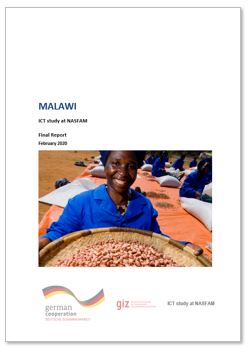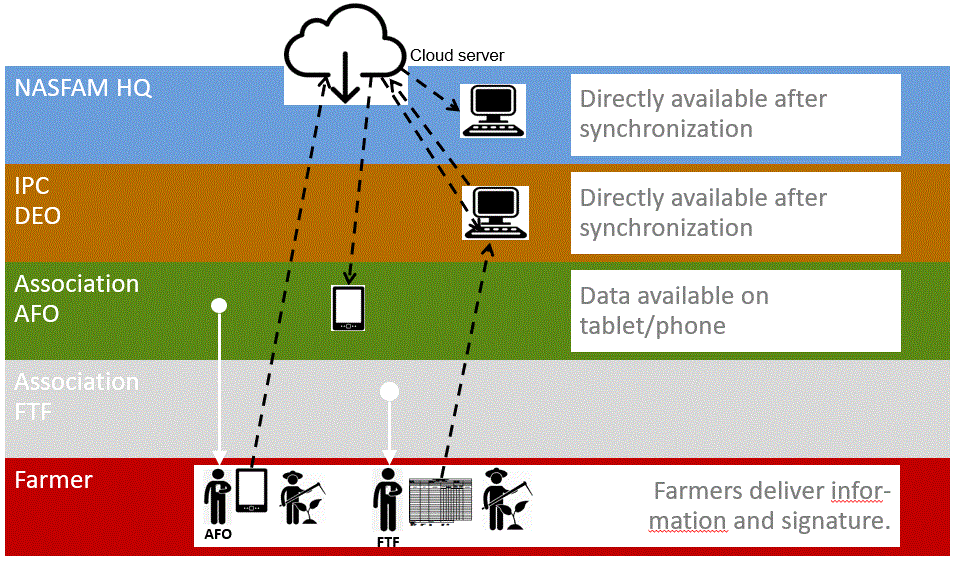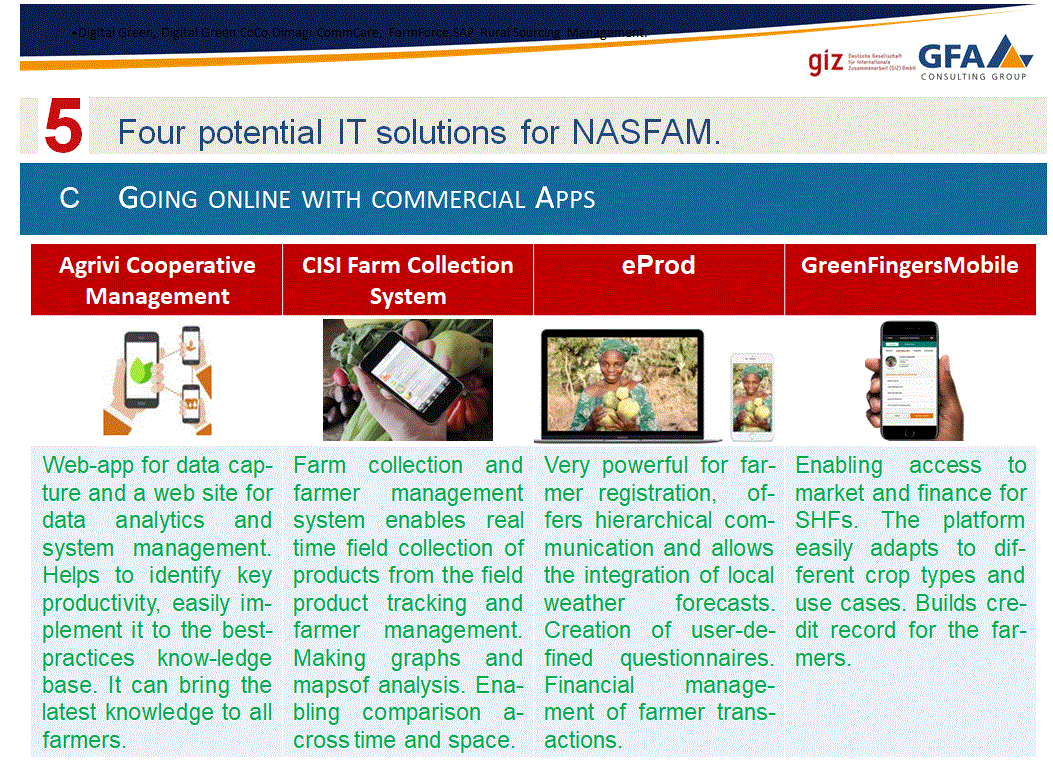


Malawi: NASFAM ICT Study
Funding:
BMZ/GIZ: German Federal Ministry of Economical Cooperation
Consulting:
GIZ: German Corporation for Technical Cooperation
Project
The assignment contributes to the Program “Green Innovation Centers for the Agriculture and Food Sector” (GIAE) under the BMZ´s special initiative “One World, No Hunger”, Malawi country package. The Malawi Country package aims at including ICT solutions as part of the innovations supported by the program, with a crosscutting approach. ICTs have the potential to positively affect the program objectives through several channels, for example bringing transparency and accountability to agricultural value chains using mobile technology and cloud-based data management.
In the GIAE program, GIZ works together with the National Smallholder Farmers´ Association (NASFAM) of Malawi – the largest smallholder owned membership organization of the country. NASFAM provides its members with both commercial services, including access to input and output markets, as well as development services, such as training and support in agricultural best practices. NASFAM and GIAE are interested in exploring the opportunities provided through enhancing digitalization of NASFAM internal data management operations for keeping track of crucial members´ data and transactions, including farmers´ registration, membership payments, purchase of inputs and grain sales.
The goal of this assignment was to provide NASFAM and GIAE a detailed report on possible ICT solutions to digitalize NASFAM`s internal member data management operations, incl. tracking of membership fees payment, total number of members, purchase of inputs through NASFAM, trainings received through NASFAM, and quantities of grain sold to NASFAM. The resulting report provides a detailed report on possible ICT solutions, tailored to NASFAM’s needs and based on an assessment of NASFAM’s resources and skills. An assessment of successes and failures from similar organizations and contexts tailored the four solutions to what is presented in the study results.
Date
23. May 2020
Category
Digital Agriculture, Food Security


